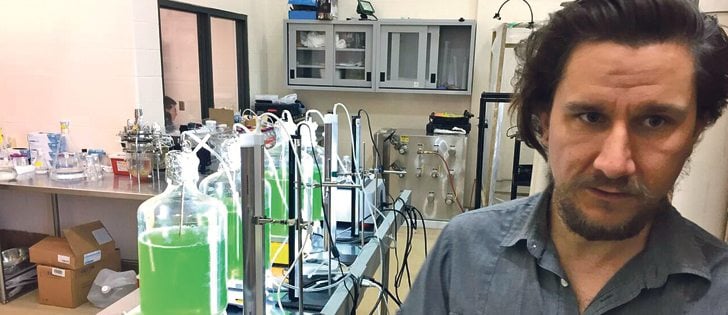Yesterday’s hearings of the U.S. congressional inquiry into the financial collapse produced some unexpected hilarity for me, as a string of Wall Street financial bosses explained why they had nothing to do with the financial and economic collapse they engineered.
Especially amusing – or appalling, if you’re of a more moralistic frame of mind than me – was Lloyd Blankfein of Goldman Sachs, who portrayed his firm as nothing more than a helping hand to poor, suffering investors who needed someone to put together investments for them. That’s all Goldman Sachs did – helped out little guys who came to them in need. Goldman Sachs wasn’t aggressively packaging risky assets into complex instruments that buyers couldn’t understand but believed were safe, Blankfein said. The firmwas simply acting as a market maker for sophisticated investors who were begging for someone to take the other side of transactions. Blankfein made Goldman sound almost passive in its behavior. Hilarious!
Read Also

Worrisome drop in grain prices
Prices had been softening for most of the previous month, but heading into the Labour Day long weekend, the price drops were startling.
It’s this kind of denial of responsibility for the shattered investments they marketed, sparking a financial meltdown and the worst U.S. recession since the Great Depression, that is making them such a handy punching bag for the Obama administration. Today U.S. president Barack Obama is expected to announce a new tax, or “fee,” on bailed-out banks that have come out of the financial poorhouse to pay for the entities that are still working the treadmill, such as GMAC and Fannie Mae and Freddie Mac.
It’s $120 billion of good politics, because not only do the American people have no sympathy for the Wall Street moneymen like those in Washington yesterday, but the millions of people losing their homes, that have lost their jobs, that see a bleak future would love to see the proverbial “fat cats” squealing like stuck pigs.
Personally, I’ve always believed that greed had little to do with the meltdown or Wall Street’s shenanigans. Wall Street is always greedy. What do you expect it to be? It’s not wrong for an investment banker to want to make a bunch of money. Why else are they in the business? To help little people? But they were underregulated – there were enough regulations, probably, but too few enforcement staff – and suffered the same hubris that sucked almost everyone up in the past decade and a half. Even the regulators seemed to stop caring about naked risk.
Yesterday the bankers pointed to too-long-low interest rates as the culprit for the crisis, forcing pension plans and annuity-paying insurance companies and others to desperately seek higher yields than treasuries were offering. That’s the Blame Greenspan argument. Another smartguy I heard interviewed yesterday pointed out that the Wall Street investment firms were once mostly limited partnerships, so if the firms cratered the traders lost all their equity and their ability to make money; now they are publicly traded companies the traders can go on making their bonuses and the people who lose their money are their clients and their shareholders. If the government bails out these firms, going broke doesn’t change their behavior. That’s a structural argument.
I think, and I’ve argued before, that we’re giving too much credit to Wall Street if we think most folks there realized the extremity of the risks they were taking. They knew they were taking risks and passing them off. That’s the finance game. But to believe that they knew the perilous situation they were creating and then – if you’re Goldman Sachs – finesse your way through a massive financial meltdown and leverage government connections to come out the other side bigger and better than ever is giving them too much credit by half.
Everyone everywhere seemed to abandon the notion of risk in the 2000s. Most people – and this is certainly true in Winnipeg, where I live – has seemed to believe that house prices can continually rise at double digit rates, providing home equity that can be drawn out to pay for snowmobiles and winter vacations and $50,000 kitchen renovations. This is still happening, because house prices haven’t slumped here. This is what happens in a bubble. Everyone buys in. And the aggressive investment engineers like those in Wall Street may lead it off, but they’re caught up in the same misreading of risk. Hubris sweeps us all along and only in retrospect can most see the “obvious causes” and the supposed culprits.
Let me end off this overlong posting on a non-agricultural topic with a key couple of paragraphs from Carmen Reinhart’s and Kenneth Rogoff’s masterpiece This Time is Different, Eight Centuries of Financial Folly (2009).
“Economic theory tells us that it is precisely the fickle nature of confidence, including its dependence on the public’s expectation of future events, that makes it so difficult to predict the timing of debt crises. High debt levels lead, in many mathematical economics models, to ‘multiple equilibria’ in which the debt level might be sustained – or might not be. Economists do not have a terribly good idea of what kinds of events shift confidence and of how to concretely assess confidence vulnerability. What one does see, again and again, in the history of financial crises is that when an accident is waiting to happen, it eventually does.”















